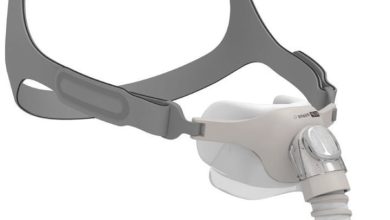
What do you do each day to increase your bank account balance? If you cannot provide an answer, it is time to establish new money habits to help you budget better through medical school.
Your financial health is based on your everyday choices, like your physical health.
Certain money habits can help you maintain financial comfort and build wealth, just as healthy habits like eating properly and exercising keep you physically strong.
To reduce the debt you’ll have to deal with once you start making payments, you must live on a budget while you’re a medical student.
How to plan your student budget?
Starting a money monitoring system is the first step in creating a budget. Use an app, an excel sheet, or plain old pen and paper to keep a thorough account of every penny you spend for around a month.
By the time you’re done, you’ll have a clear picture of your spending patterns and be able to start breaking things down. Start classifying costs into either “fixed” or “variable” categories.
Fixed expenses are constant from month to month (or week to week), such as rent, student loan repayments, utilities, or groceries—basically, anything you have to pay for.
Rather, factors are ever-changing and might include things like going to a restaurant with friends or going on a
Resources, equipment, and board exams are expenses that can benefit from having their tracking list and budget as neither of the other two categories properly fits them.
Although they must be considered, they occur sporadic times throughout the year. Therefore they merit their cash reserve.
Here are ten money habits to help you manage your finances better throughout medical school:
-
Before using your credit line, consider other options:
Before using your line of credit, take a look elsewhere. For example, if you rely on a student line of credit to pay for your education, you should only take out as much as you require to prevent needless debt. Therefore, consider alternate sources of income first.
You may be able to use your education savings or family support. Make sure you’ve submitted applications for government loans, grants, and scholarships.
Use earnings from a side business, such as tutoring. A budget makes the most efficient use of the available funds.
-
Estimate all your expenses:
It’s crucial to distinguish between fixed costs and spending that you have some influence over when making a budget.
Rent, phone subscriptions, and auto insurance won’t fluctuate monthly, so you know how much to budget for fixed education costs like tuition.
Calculate how much you anticipate spending each month on them. Then, include a little buffer to cover unforeseen costs.
-
Set a monthly allowance:
A goal is beneficial. Determine your monthly spending limit based on anticipated costs for the academic year.
Try to adhere to your monthly cap, including credit card transactions. Every month may not be perfect, but you can always make adjustments to reflect reality.
-
Utilize Smart Transportation:
Bike to work and school if the weather, schedule, and location permit. It is less expensive and helps you stay in shape. Purchase a second-hand bike to save even more money.
Decide to carpool. Create or join a carpool if you do drive. It will enable you to split the driving duties with others and save you money on petrol, parking, and “wear and tear” on your car.
-
Observe in your way:
Whether you enjoy using spreadsheets or prefer to keep notes on paper, keep track of your spending. Do stick to whatever schedule you choose weekly, monthly, or quarterly.
You may effortlessly enter data on well-known websites and budgeting programs. However, be wary of third-party services that request that you attach your personal financial information because doing so might leave you open to fraud.
-
Shop with caution:
Food expenses are frequently underestimated, but those late-night burritos and rising supermarket prices don’t help! Instead, keep basic ingredients in your kitchen, set up an hour each week to prepare your meals, and avoid going to the store when you’re hungry.
Avoid making impulsive purchases that might blow a budget when it comes to other sorts of purchasing.
-
To get the complete image, step back:
You may need to change your budget each semester to account for changing costs and unforeseen expenses, such as attending conferences or taking optional courses that require travel (post-pandemic).
Things may vary month to month, so watch for trends. In addition, check the balance on your line of credit frequently to compare against initial forecasts and adjust expenditures if necessary.
-
Give yourself rewards:
If you want to make it through the rigors of medical school, you must take care of your physical and mental health. Therefore, you should never be denied necessities for your health and happiness because of a tight budget.
Nobody else matters but you, whether you need to get nut milk or a certain set of running shoes.
-
Own up to it:
Although convenient, it may also be pricey. While some services are worthwhile to pay for to free up your time or prevent further expenses due to errors, you may potentially save thousands of dollars by developing the habit of handling numerous assignments on your own.
Simple actions like cooking meals at home or purchasing a manicure kit to take care of your nails can result in significant financial savings.
Defining Occupation In Occupational Therapy and More!
-
Automate Your Finances:
Automating your transactions is an additional strategy for preventing late payments. Set up automated transfers using your bank’s online bill payment tool to send money out to pay bills at least three days before the due dates.
The practice of “paying oneself first” benefits greatly from automation. Set up automatic contributions if you have a retirement account via your employer.
Set up automatic transfers from your checking account to a savings or retirement account the day following payday if you receive regular, fixed-amount paychecks. Keep an eye on these automated transfers to avoid ever being overdrawn.
Conclusion:
The cost of living in medical school is, without a doubt, high. There are several expenses, including rent, food, textbooks, and tuition. But that does not imply that it must be expensive.
Your monthly costs may reduce with well-planned budgeting, which will make them simpler to handle.
The good news is that you can utilize cost-cutting techniques to make it simpler to control your spending, and if you understand the fundamentals of budgeting, you’ll be able to use them in other aspects of your life.
We help Medical Students pass their USMLE Step 1 Exams and provide Live and Live Online Review Courses as well as 1:1 Tutoring.



